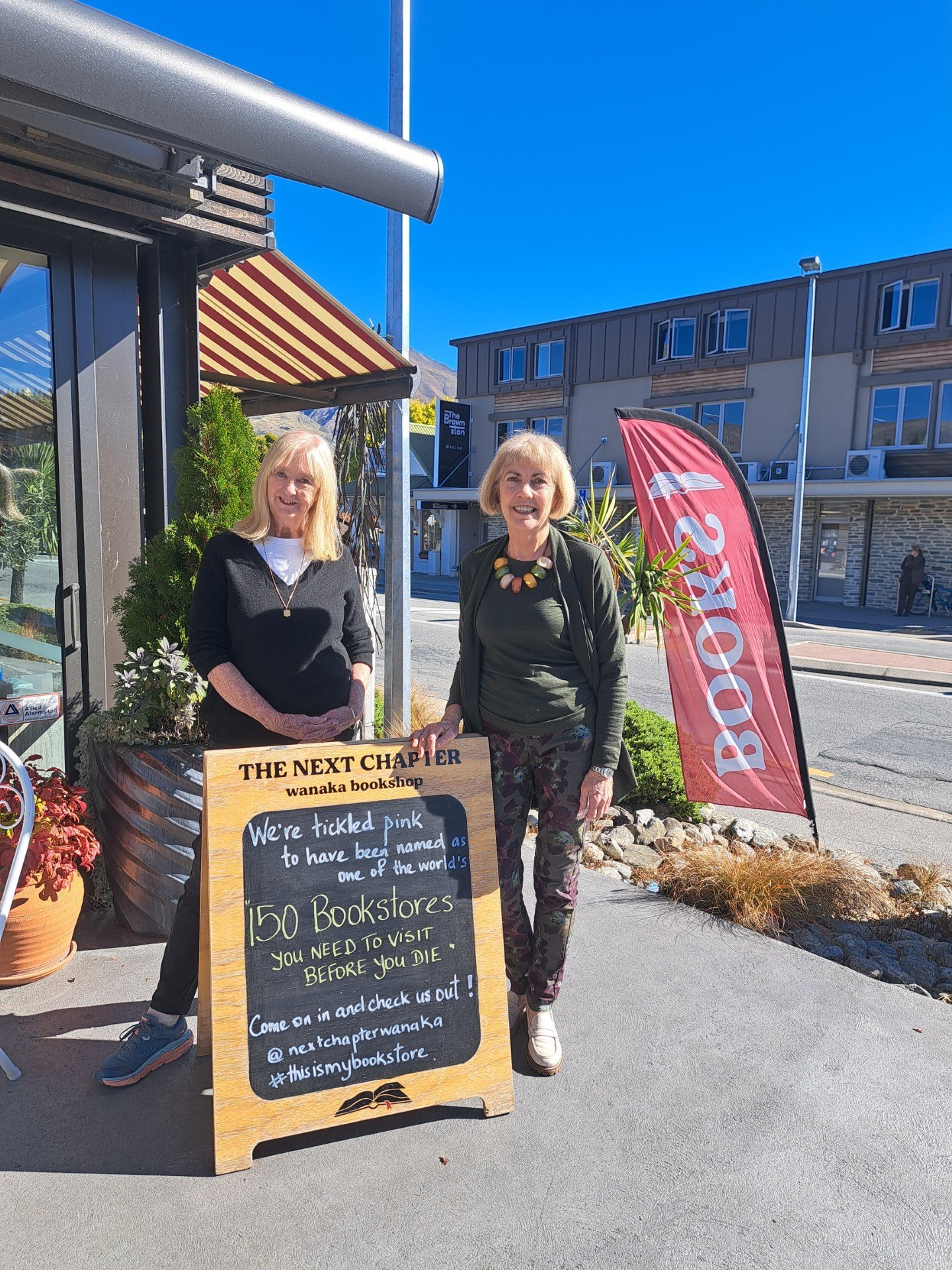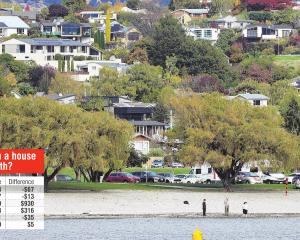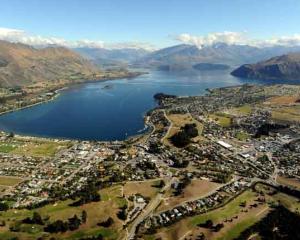
Founded in 2020 by neighbours Sally Battson and Jenny Ainge, the purpose-built shop doubled in size last year to about 100sqm to accommodate more children and young adults’ books, more gardening books, more on travel, cooking, art and architecture — "and to have a bit of space to breathe", Mrs Ainge said.
The shop stocks about 12,000 books and the biggest seller is fiction.
Are bookshops dying?
"We are bucking the trend," Mrs Ainge said.
Since expanding the space, sales have gone up, on average, about 30% a month.
Customer numbers have increased to about 100 visitors a day, Mrs Ainge said.
Average prices have gone up too, from about $37 four years ago to a "distressing" $42, mainly because of the costs in getting a book to the bottom of the South Island.
"Books should be affordable, as should the price of fish and chips. Books, I think, are a comfort item, like a new lipstick or a trip to the movies or a similar little treat," Mrs Ainge said.

A quick scan of book news in the Otago Daily Times, The Spinoff and The New Zealand Herald reveals a myriad of reasons for closing the shop doors.
Buildings get sold or knocked down, owners retire or want to do other things. Some shops could not get over the Covid hangover. However, some are clearly surviving.
On March 7, the Global Book Market (GBM) 2023 report, jointly prepared by GfK Entertainment and Nielsen BookData, noted revenue growth in 12 of 16 studied countries (including New Zealand) last year, despite major challenges from online business.
New Zealand and Australia were two of four countries reporting a decline in revenue: Australia (-2.1%) and New Zealand (-5.4%).
So why is Wanaka’s new independent book store bucking these trends?
First, it seems location is everything.
Mrs Ainge and Ms Battson built on Brownston St, next to Cinema Paradiso. It is over the road from a deli, food carts and a backpackers.
Mrs Ainge believes synergy with the neighbours and tourists are factors in their success.
She also believes readers have not given up on the sensory experience of being with a book.
"It is a tactile experience. Books and art, it is about engagement, the touch, feel, sense, the smell of a new book.
"It can be a comforting experience. We are answering a need for a more real experience that goes beyond screens," she said.
And readers want more than just books. They want to meet bookworms - well-travelled readers, experts in reviews.
Every day, long distance walkers call by to pick up a new read for the next leg of the Te Araroa Trail and share stories of books found or left in places along the way.
"It is about having a wraparound service," Mrs Ainge said.
The bookshop keepers have also installed a free Lilliput Library right outside their door - something they say does not compete with their purpose at all. They find it encourages people to come in and chat.
Recently, Mrs Ainge and Ms Battson decided to tap into the connections between writers and artists.
They collaborated with Bartley and Company Art, of Wellington, to set up the shop’s first mini-exhibition in March.
It featured award-winning collage artists Miranda Parkes, a former Otago University Frances Hodgkins Fellow, and Kate Woods, an Elam School of Fine Arts-trained photographer.
They also hosted their first artist in residence, Melbourne botanical artist Deborah Law, and intend on offering more "artist in bookshop" residencies this year.
Law, a regular visitor to Wānaka and former flatmate of Mrs Ainge’s from "way back when", said she jumped at the chance to demonstrate.
"I contribute to exhibitions as much as I can at home but this is the first time in a bookshop.
"This is quite innovative, I think. I haven’t heard of it, but there is such an obvious link between art and books," she said.
During her three-day residency, she worked on autumn watercolours, chatted with visitors and shared her creative techniques.
The bookshop is also connecting with local schools, with local Mount Aspiring College pupils visiting in the lunch hours and volunteering.
And it is not just children. Adults are equally keen to volunteer. Mrs Ainge says that is all because of a desire to be with books.
"You don’t get people volunteering to work at the supermarket, do you?"












